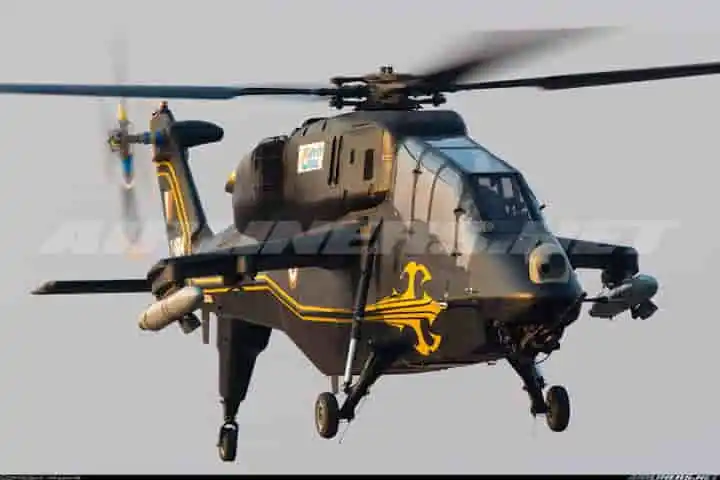By D.K. Pandey
To give a boost to Atmanirbhar Bharat in the defence sector, as a part of ‘Rashtra Raksha Samparpan Parv’ at Jhansi, the Prime Minister will formally hand over, Hindustan Aeronautics Limited (HAL) designed and developed ‘Light Combat Helicopter’ (LCH) to Chief of the Air Chief Marshal VR Chaudhari. During the Kargil War of 1999, there was a need felt for armed attack helicopters capable of operating at high altitude. The LCH will meet the IAF’s longstanding requirement of a dedicated light helicopter for combat operations at high altitudes.
Advanced technologies and a number of stealth features of the LCH makes it effective for combat roles. Specially, areas like mountainous terrain, dense treelines etc, where access for any other platform is not easily possible, will accomplish the operational missions. It’s narrow fuselage with pilot and co-pilot / gunner in tandem configuration would make the LCH more effective and efficient for offensive operations.
HAL has claimed that 'LCH is a potent weapon platform because of its state-of-the-art systems and highly accurate weapons that are capable of hitting any type of target by day or night. The other features of LCH include its ability to operate in the complete ‘Area of Responsibility’ (AOR) and altitudes. It has capability to carry adequate weapon load at high altitudes under varied conditions. All these characteristics make it most suitable for hot and high-altitude operations.’
It’s low Radar Cross Section, minimal Infra-red signatures, ability to operate at Nap of Earth (NOE) capabilities make it lethal and effective during counter insurgency, Anti-tank missions and Tactical Battle area operations.
Night attack capability enhances IAF and Army’s offensive capabilities after dark. Armour protection and crash worthy landing gear for better survivability enable it to penetrate well defended targets. Consequently, it will significantly augment the firepower of the IAF and the Army, especially in high-altitude areas.
The twin-engine LCH is an advanced version of the Advanced Light Helicopter (ALH) and has capabilities of operating above 6 km altitudes, like- Siachen glacier, the highest battlefield in the world, with an adequate payload.
The LCH is a milestone achievement of HAL’s helicopter development division. ‘The Dhruv’ ‘Advanced light helicopter (ALH), the mainstay of the Army aviation corps, is also designed by HAL, confirming the vital role of HAL in Atmanirbhar Bharat.
Another attack helicopter in the IAF is the U.S. AH-64E Apache, arguably the most advanced attack helicopter in the world. LCH was chosen over Apache for deployment in the Ladakh region in the Himalayas, where India and China were engaged in a military standoff. The region has an altitude between 10,000 – 18,000 feet. The move was due to LCH’s ability to perform at high altitudes, which can be a challenge for rotary-wing aircraft. LCH makes for a better choice in the mountainous regions as it is more important to have an armed helicopter that can fly above the mountains instead of destructive ones which may not stand the challenging terrain and weather conditions. It is the first attack helicopter to land at the forward landing base in Siachen.
However, there is a trade-off between the capabilities of the two attack helicopters viz-a-viz the armament. While AH-64 can fly with 30-millimetre (mm) cannon and up to 16 Hellfire missiles and Hydra 70-millimeter unguided rockets, LCH is lightly armed with 20-mm cannon, Air to Air Missiles (ATAM), Air to Ground Missiles (ATGM), Anti-Radiation missiles and 70 mm rockets.
Compared to the Apache, according to one comparative Study, the LCH has longer range (435 miles) against that of Apache (300 miles); as well as better operational ceiling (21325 ft). Apache ‘s operational ceiling is 20997 feet. However, the Apache is faster and has more engine power in comparison to the LCH.
LCH has proven its might during numerous trial landings conducted on the Siachen glacier in Ladakh, at altitudes up to 15,800 feet while carrying a modest 500-kilogram load.
The LCH will strengthen our offensive capabilities along the Line of Actual Control with China in addition to the AH-64E Apache helicopters. Sufficient numbers of LCHs may spare the Apache helicopters for other areas of operations.
It’s a proud moment for the nation where we are progressing towards self-dependence in complex and challenging sectors, like-defence sector. Need is to support and give impetus to all the stakeholders of the various projects.
Also Read: On Air Force Day, Indian Air Force showcases readiness for a two-front war
(Dr. DK Pandey is Professor (Aviation) at Galgotias University. He retired from the Indian Air Force as Group Captain. The views expressed are personal)




















